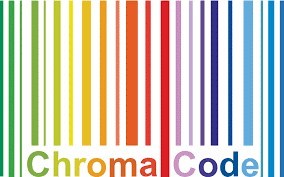CARLSBAD, Calif., Jan. 26, 2024 /PRNewswire/ -- ChromaCode, Inc., a pioneering genomics multiplexing platform company developing accessible and affordable laboratory-based solutions, today announced the publication of a study entitled "NSCLC Digital PCR Panel Returns Low Input Sample Results Where Sequencing Fails" in the journal Diagnostics.
ChromaCode's HDPCR technology helps to address low sample input, which is a common issue with core biopsy specimens used in the diagnosis of non-small cell lung cancer (NSCLC) and other tumor types. This is of vital importance for the approximately 20% of patients with NSCLC that would benefit from targeted therapies, but because of insufficient quantity and quality of the sample, do not receive the next-generation sequencing (NGS) results necessary for treatment. The ability to provide accurate biomarker testing results at low mass input and as a rapid first line test is a crucial step toward rescuing samples below the detection limit for NGS and in obtaining results quickly.
Key findings of the study include:
- While NGS had up to an 86% loss in sensitivity as contrived sample inputs were serially diluted, the HDPCR NSCLC Panel showed high sensitivity and specificity in diluted low-input samples that ranged from 40 to 1 ng DNA and from 20 to 2.5 ng RNA.
- The HDPCR NSCLC Panel is an ideal test for National Comprehensive Cancer Network (NCCN) guideline directed clinically relevant variants. The test exhibits >95% positive percent agreement (PPA) with standard-of-care NGS with inputs as low as 15ng DNA and 7.5ng RNA in low-quality clinical samples and 100% PPA with NGS down to 1 ng DNA and 2.5 ng RNA on reference samples.
- The HDPCR NSCLC Panel was able to detect variants below input requirements for NGS with accurate results down to 10 ng DNA and 7.5 ng RNA. Importantly the test detected variants missed by NGS at these lower levels.
"We have leveraged our HDPCR technology to build a rapid and cost-effective first line assay in NSCLC, covering 99.6% of prevalent NCCN variants. In this study, we have demonstrated additional utility in this assay as an alternative when there is not enough sample material to perform molecular profiling by NGS," said Mark McDonough, CEO of ChromaCode. "We also look forward to extending the utility of this technology beyond NSCLC as a therapy selection tool, as other tumor types utilizing core biopsies with potentially low sample volumes such as gliomas, cholangiocarcinoma and thyroid cancers could benefit from our technology."
The findings suggest that HDPCR emerges as a precise and efficient approach for identifying clinically relevant NSCLC mutations, even with low nucleotide input and quality.
About ChromaCode
ChromaCode is an innovator in genomics multiplexing platform technology, providing laboratory solutions with its proven HDPCR™ technology. HDPCR™ is a revolutionary approach allowing for deep multiplexing of biomarkers in a single, rapid, cost-effective assay for multiple sample types on standard laboratory dPCR platforms. This adaptable technology, deployed with ChromaCode's cloud-based analysis, enables laboratories worldwide to affordably conduct testing internally and produce high quality results with demonstrated high concordance with next generation sequencing (NGS) based testing, increasing accessibility of diagnostics with a cost effective and scalable solution. For more information visit ChromaCode.com or find us on LinkedIn and Twitter.
Media Contact – ChromaCode
David Schull
Russo Partners
858-717-2310
david.schull@russopartnersllc.com
SOURCE ChromaCode, Inc.

WANT YOUR COMPANY'S NEWS FEATURED ON PRNEWSWIRE.COM?
Newsrooms &
Influencers
Digital Media
Outlets
Journalists
Opted In





Share this article